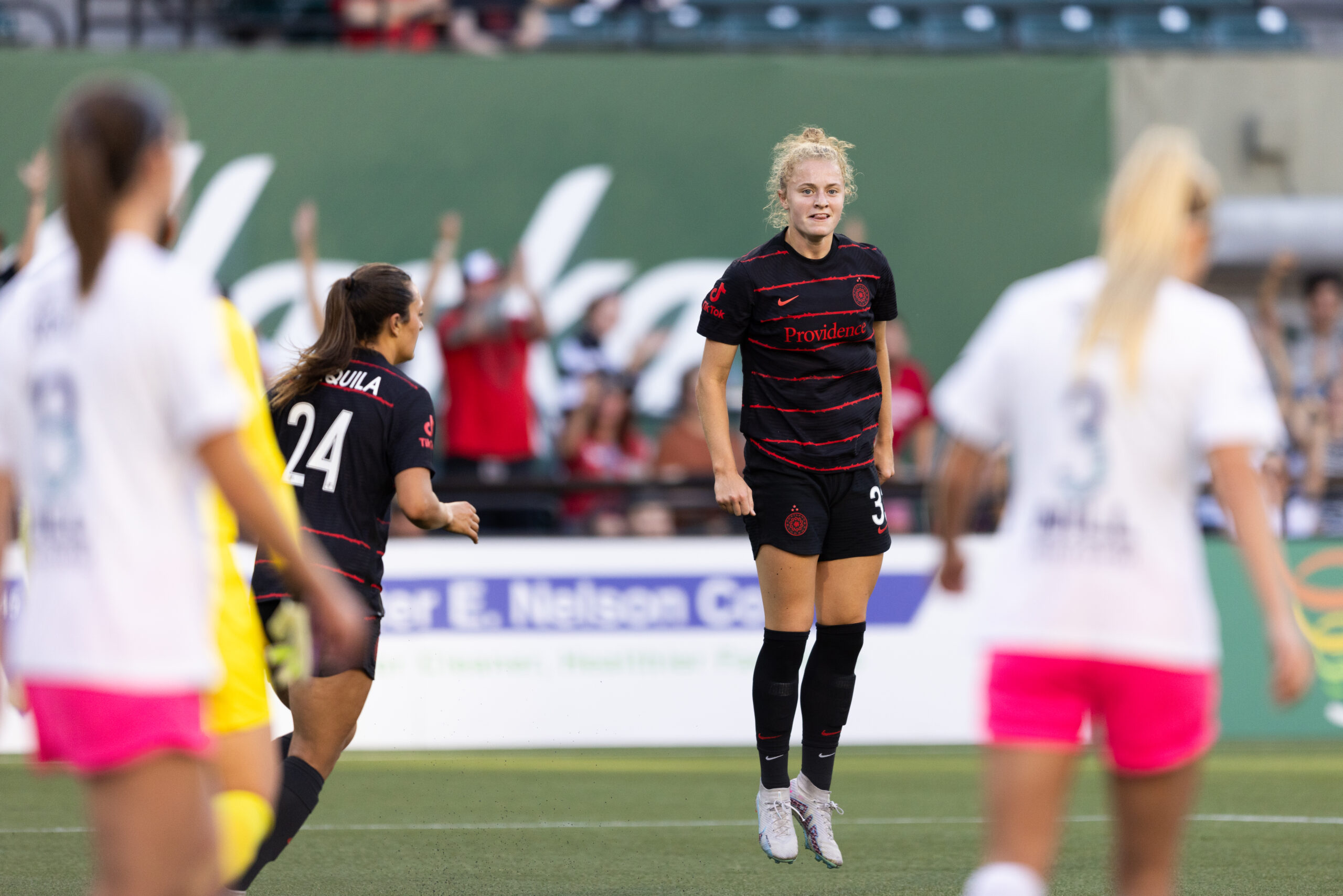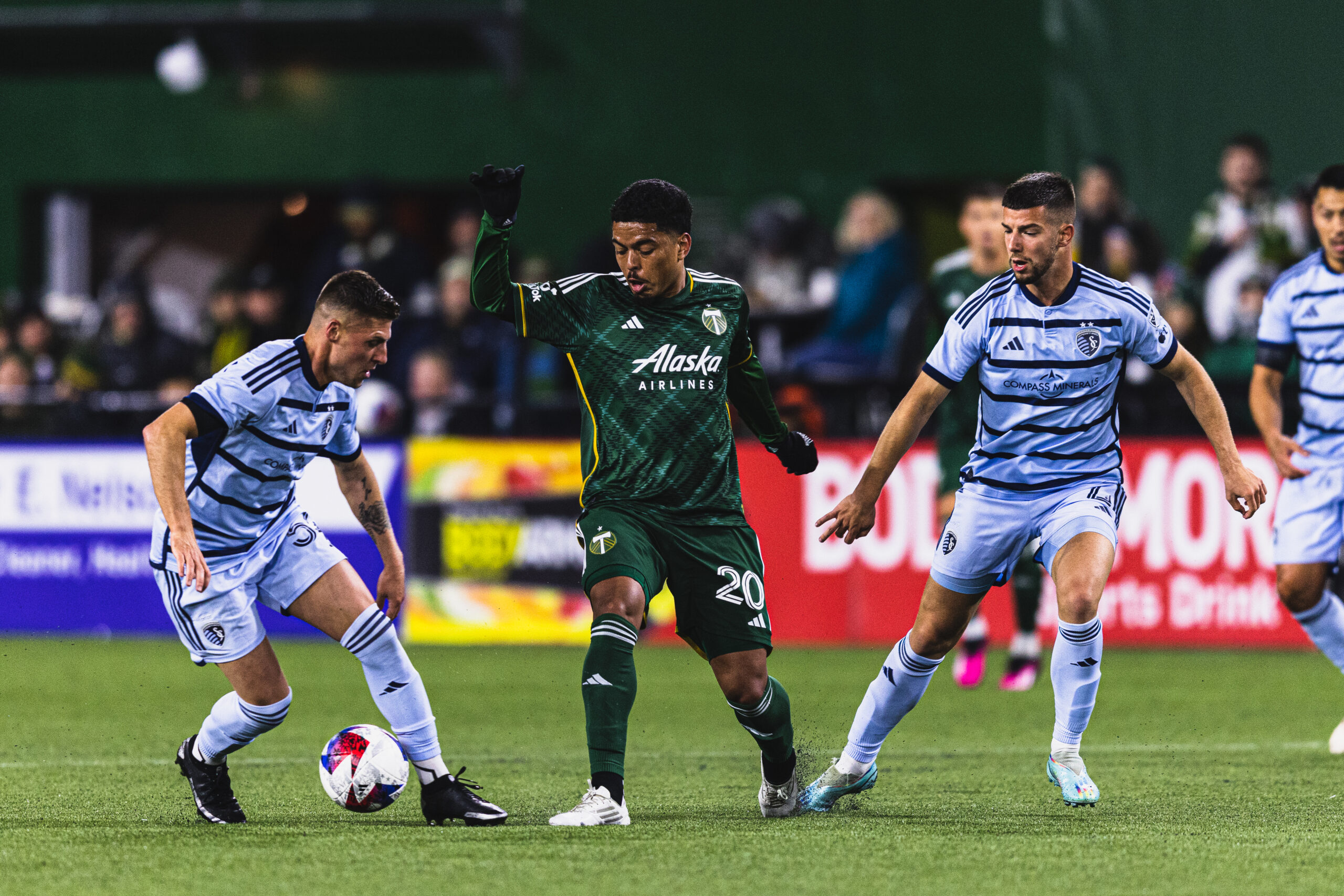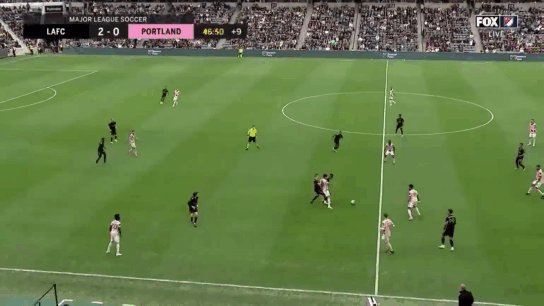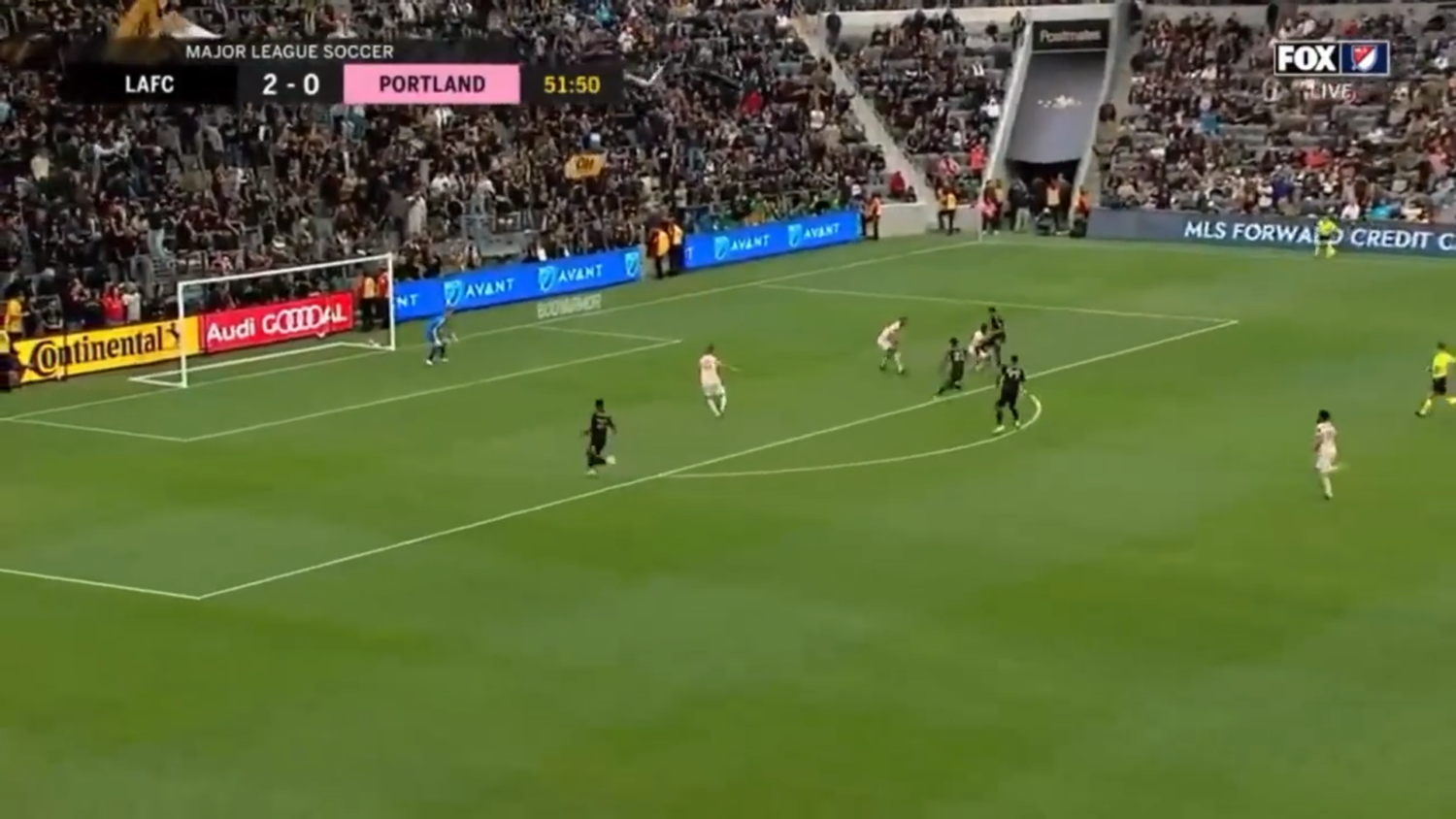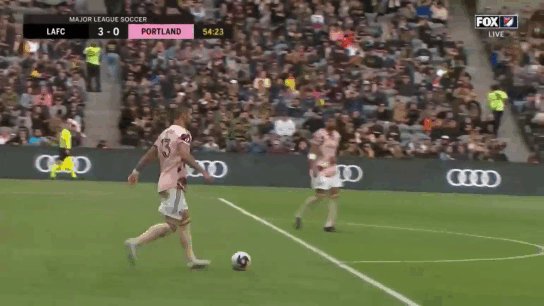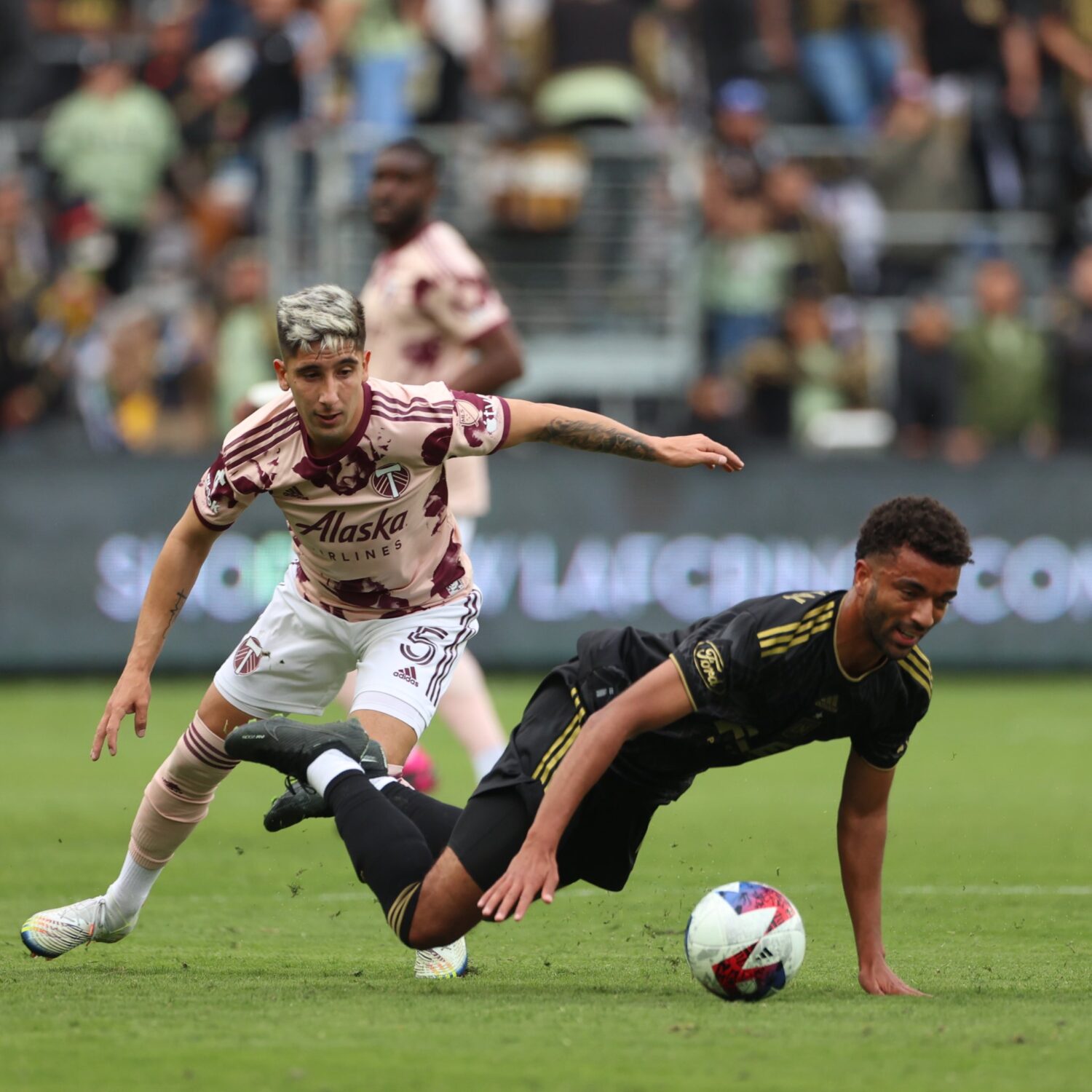The Northwest Derby turned another chapter Sunday as the Portland Thorns—who were already eliminated from contention in the Challenge Cup—took on OL Reign up in the Emerald City. It was a battle of defenses, resulting in a 0-0 draw that left Thorns fans breathing a sigh of relief.
Heading into the match, it would be understandable to expect head coach Mike Norris to throw in the towel on a match like this, rest all starters, and just get some minutes for the deeper bench. It would also be understandable for someone to look at the schedule and Portland’s recent results and say, “This is a team desperate for a win; we need to start whoever is available.”
In the end, the Thorns split the difference, starting Shelby Hogan and Izzy D’Aquila in place of Bella Bixby and Morgan Weaver. A veteran-heavy backline left Reyna Reyes, who’s shown significant growth in form this season watching from the sidelines, as Meaghan Nally came in as a defensive sub for Emily Menges late in the second half.
Watching this match as a fan of the team would not have been easy, I will concede that.
Fortunately, I was able to don my “media” cap for this one and set my emotions aside as I watched OL Reign dominate on the attacking action on pitch. The Thorns struggled to get into the attacking third in the first half, as their passes continued to get picked off through the midfield. Without Weaver in the starting lineup, the team lacked the burst-speed to get behind the backline and play over the top, as well. With the exception of a few half-chances, the Thorns never looked particularly dangerous offensively in this match, and with Weaver only seeing roughly 15 minutes, including stoppage, the chances just never materialized. Fortunately, the Thorns defense and Hogan played a solid match, keeping the score 0-0 and giving Hogan a well-deserved shutout. Given Challenge Cup stakes for either team, to escape Seattle with a point is a victory for Portland and a disappointment for OL. That is always something Riveters can hang their hat on.
Planning ahead
All-in-all, I got the message: We want to be competitive, but we want to get our depth players some minutes before the international players return as well. Players need match minutes to develop.
I recognize that many may disagree. Players come to play, and they always (or should always) give 100%. I won’t ever imply that players take games off, but sports psychology is a finicky field. Playing in front of a crowd, the adrenaline of competing against another team, and the ability to match the intensity, skill, and focus of an experienced opponent whose goal is to pulverize you, is not easily replicated in practice. Additionally, some teams perform better when their backs are against a wall; must-win games can bring out another level in a team and their players. But why does this matter though when we are getting several of our international stars back within the next couple weeks? (Editor’s note: I’m still mad that Japan isn’t advancing past the quarterfinals, but it’s nice that all our World Cup players should be on their way back to Portland in the near future.)
It is hard for me to criticize USWNT head coach Vlatko Andonovski for his lack of rotation of the during World Cup, only to turn around and also criticize Norris for giving minutes to rotational players instead of regular starters—especially in a Challenge Cup match that wouldn’t realistically change our standings in either the league or the Challenge Cup race.
That doesn’t mean this was a meaningless match. You always want to field a competitive team, especially in a derby, if for nothing else than for team psyche and routine. However, the chance for players like D’Aquila and Taylor Porter to get extended minutes is an opportunity the Thorns hope will pay dividends in late September and early October. With the Challenge Cup now a mid-season tournament, players are playing far more minutes each week than they are accustomed to. International players have had to add their duties to their country, and the resulting additional travel, on top of these extra games when they are with their club. It’s a lot of minutes on the body.
As the season winds down, teams are looking to make a push for playoff positioning. The intensity is going to rise, and the minutes will be harder and more physical, players’ bodies are going to take longer to recover, and the fear of injuries will intensify. As the season goes on, having these rotational players ready to plug in will be extremely important. Developing their game mentality and their physical abilities to compete at the NWSL level will be a risk that should see benefits throughout the remainder of this season—and hopefully into the playoffs.
Robbing Peter to pay Paul
It is a unique perspective to watch a match from the press box, one you don’t get on camera or from the stands. As I watched OL continue to drop ball after ball over the Thorns’ outside backs, as Kelli Hubly and Menges did their best to rotate and take away angles, I realized how much the midfield still needs tweaking on the defensive end.
Having attacking outside backs like Meghan Klingenberg and Natalia Kuikka leaves the defense in a constant state of transition. It felt, for much of this match, that the midfield needed to support the backline by getting back defensively. Too many times the Regin’s counterattack left the Thorns scrambling.
This didn’t seem like a practical skill issue as much as a situational awareness issue.
Players appeared to be clambering to put out fires they hadn’t anticipated.
The Thorns have a midfield of players who excel at maintaining possession with the ball at their feet, but outside of Sam Coffey, it seemed the Reign defense was too often picking off the ball, resulting in Seattle counterattacks. When that happened, it became a mad dash to stop the bleeding. And fortunately, the Thorns had the skill and physical attributes to do so.
Going back to my previous takeaway, this is something that can be practiced in training, but is a skill that takes match minutes to really become proficient at. It’s a mental preparation of visualizing possible outcomes, including the movement of opposing players positioned around the pitch, and how to respond. Veteran players have experienced nearly every outcome, have learned from their mistakes, and tend to be able to react with lower levels of stress and put themselves in less vulnerable positions. This is one reason why getting those minutes to rotational players in matches like this, will be better for the team down the road.
That said, practicing visualization outside of matches will have practical applications for mental preparedness during in-match scenarios. Similar mental preparation tactics are deployed across occupations that face high-stress and volatile situations, such as emergency responders. In the moment, our brains don’t recognize the difference between, “Oh no, this is a life threatening situation,” and, “Oh no, I made a mistake that may give up a goal.” We all lack the ability to differentiate the value of those when our brains kick in the cortisol, but mental preparation helps us preemptively adjust in relation to changing conditions such as defensive positioning.
With outside defenders moving so far up the pitch into the attack, the midfield needs to prepare themselves better mentally to react on the defensive end.
There’s speed, and then there’s speed
In case anyone was wondering, Sophia Smith, Hina Sugita, Weaver, Rocky Rodríguez, and Crystal Dunn are really, really fast. Their presence has the ability to change the offensive look of this team. The Thorns struggled to drive the offense past the Reign’s defensive midfield through the feet of Coffey. Hannah Betfort is a fast player, and can outrun much of the team in a baseline-to-baseline sprint, but the aforementioned players would win handily in a sprint from baseline to the top of the keeper box. Tziarra King had this for OL, which is another reason they were able to play over the top so easily against Portland. Without that quick burst of speed, the Thorns lacked the ability to play over the top, and struggled to get footholds offensively. OL Reign were able to dedicate their defensive resources to keeping play near the centerline of the pitch and to disrupting passing lanes.
None of this is an indictment of the talent or skill of Betfort or D’Aquila. The Thorns don’t lack for talent, but the talent needs to be complimentary within the system, and the system didn’t adjust to fit Betfort and D’Aquilla. They’re just currently not the type of forwards who create the extra foot of separation needed to put a defense on their heels and cause chaos for an opponent’s backline, like Smith and Weaver are.
There are ways for them to develop positioning tactics, like we’ve seen from Christine Sinclair or Lindsey Horan, that would make them more effective and impactful in the roles they play.
But the main takeaway is that without the dual speed of Smith and Weaver, or Weaver and Hina Sugita, the Thorns just aren’t getting behind enemy lines and become largely one-dimensional offensively. This has become glaringly obvious in the team’s recent run of play. Hopefully, the change of roles for D’Aquila and Betfort upon the return of Portland’s World Cup players allows them to be more effective within their minutes—and allows the team to be more effective at supporting their skill sets.
What next?
The World Cup misfortunes of Canada, Costa Rica, USWNT, and now Japan will hopefully breathe life back into a stagnant Thorns offense in the coming weeks. With the return of Rodríguez, Smith, and Dunn, the Thorns will get injections of speed and energy (not to mention the reigning NWSL MVP, who is statistically on pace to be in contention to repeat the title). One of my favorite aspects of Sinclair this year has been her defensive tenacity on turnovers between the goal and centerline, often getting the ball back before it can be played forward, if not disrupting the play and slowing the counter. The Thorns still sit comfortably in second place in the NWSL standings, with a majority of the NWSL matches during the World Cup being of the Challenge Cup variety, and not impacting league standings.
They return home on Sunday, Aug. 20 for a match against the North Carolina Courage. Whether or not international players will be available for that match remains to be released, but an eventual return is inevitable, and tentatively on the horizon for some. In the meantime, the Thorns will continue to watch the film and grow from these opportunities.

